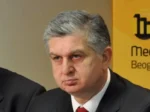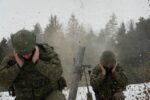As the Czech Republic heads to the polls on October 3-4, elections are shaping up as a critical test for the future direction of the country, with voters weighing economic concerns against foreign policy stances.
The governing center-right coalition Spolu, led by Prime Minister Petr Fiala, campaigns on a pro-Western platform, emphasizing full support for Ukraine and NATO membership. The coalition highlights achievements such as hosting over 500,000 Ukrainian refugees, providing military aid, and stabilizing the national economy.
“These elections are decisive. Pro-Russian forces are openly trying to come to power for the first time,” said Foreign Minister Jan Lipavsky, urging citizens to maintain the country’s pro-Western course.
Economic Recovery Arrives Too Late
While fiscal measures have reduced the budget deficit to under 2% of GDP and increased average gross wages to over €2,000 per month, many voters remain frustrated. Slow economic growth, inflation, and delayed pension increases have left pensioners and middle-class voters disillusioned with the government.
“Fiala prioritized funding for Ukraine over Czech citizens,” said one angry pensioner, reflecting widespread public dissatisfaction.
Opposition Leader Andrej Babis Gains Momentum
The main opposition party, ANO, led by former Prime Minister Andrej Babis, promises higher pensions, lower mortgages, and reduced prices, appealing to voters dissatisfied with austerity measures. Babis has actively campaigned nationwide, presenting himself as a savior of the Czech standard of living.
The opposition also opposes the EU Green Deal and emission certificates, while leaving its stance on continued support for Ukraine largely ambiguous. There are speculations about possible alliances with pro-Russian parties advocating a withdrawal from NATO and the EU.
Foreign Policy as a Key Factor
Experts highlight that foreign policy and security issues, particularly regarding Ukraine and Russia, are playing a more decisive role than ever. Yet, political analyst Lubomir Kopeček of Masaryk University notes that economic conditions will likely dominate voter decisions, and the late recovery may prevent the ruling coalition from retaining power.
“For the Fiala government to stay in power would be akin to a political miracle,” Kopeček concludes.
As the Czech electorate considers both financial realities and geopolitical alignment, the October elections could redefine the country’s position in Europe and its ties with the West.







